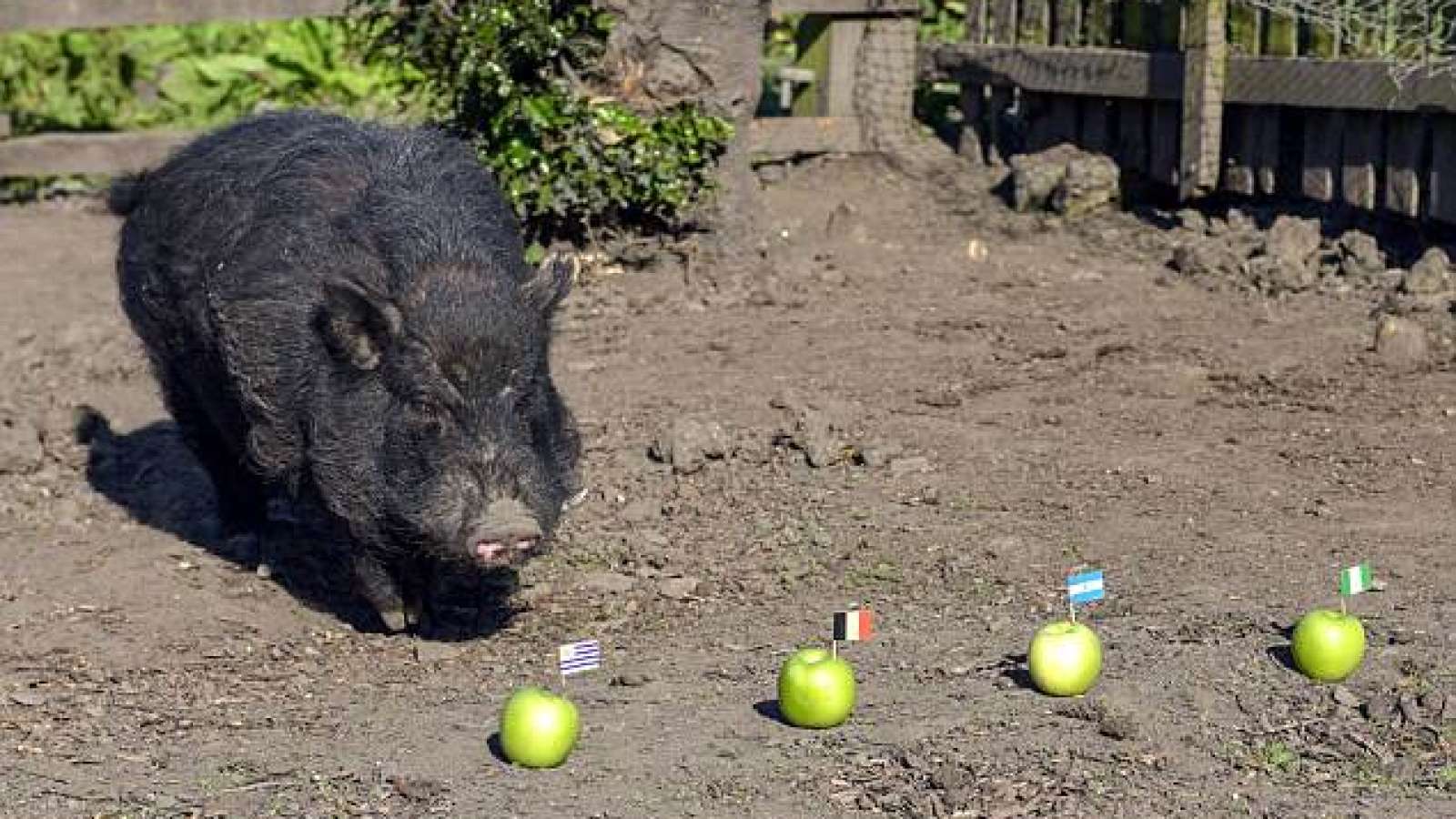
Two summers ago, we discussed four ways AI was used at the Rio Olympics, and so we thought we’d perform a similar exercise for the World Cup. Considering how fickle the matches have been so far (except for England’s victorious opening, obviously), this time we’re focusing on different methods to predict which team will be lifting the Cup over their heads on July 15th. While some of us are eschewing statistics altogether and taking our chances on a sweepstake, others are placing bets with bookmakers based on extensive statistical analysis and machine learning… or whether a pig eats an apple.
At the last World Cup, it was estimated that British punters would gamble £1 billion over the course of the event. Traditionally, bookmakers determine betting odds by using statisticians’ analysis of extensive databases of results to quantify the probability of how any possible match might turn out. In order to produce a consistent amount of profit, bookmakers balance true probability with public opinion, to decrease risk for both bookmaker and punter. And although they have begun incorporating AI into their work, many nuances of their job remain firmly dependent on humans. For example, a shrewd act is to find out a team’s lineup before it is officially announced, which involves building a relationship with the club and knowing who to call ahead of match day. That’s something very much outside the capabilities of a chatbot.
Artificial intelligence does however, get a kick out of statistical models. Academics from Germany and Belgium used three to simulate the World Cup 100,000 times, one of which was random tree. It is based on the idea that a future event can be determined by a decision tree, where an outcome is calculated at each branch by referencing the dataset. The researchers combined this method with machine learning to map out random branches – different scenarios and their consequences – many times over. By placing emphasis on different factors and repeating the simulations, the team was able to identify which factors are more or less influential in determining the outcome.
They found that the rankings of national teams, whether from bookmakers or FIFA, as well as the country’s GDP and number of Champions League players in the team, are all highly relevant; the country’s population or coach’s nationality are not. At the start of the tournament, Spain is the frontrunner, because the model thinks it unlikely that La Roja will face strong opposition in the final 16, and therefore has a high chance of going through to the quarter-finals. Germany is likely to face tough opponents in the knockout phase, and so has a lower chance of reaching the quarter-finals. But after simulating the most probable tournament course, Germany overtakes Spain as most likely to take the Cup home.
Goldman Sachs disagrees and bets on Brazil instead. The financial firm ran 1 million simulations of the tournament based on machine learning models that mined information about the teams, their recent performances and individual players. You’d be forgiven for experiencing a sense of déjà vu – the company’s machine learning models (incorrectly) predicted the same outcome in 2014.
A company that does have sporting prediction kudos is the San Francisco-based tech firm Unanimous A.I., who called the exact final score of the 2017 Super Bowl. It’s approach of swarm AI technology joins real-time human insight with algorithms, to mirror the abilities of swarms of bees in nature, which combine group insights in optimised ways. The expertise of 30 sports handicappers (people who predict winners in a contest) was amplified by AI, and the outcome was that Germany would beat Brazil in the final.
Of course, not everyone has access to a vast pool of football data or department of brainy researchers. Cue Mystic Marcus, the predictive pig that is bravely stepping into the (eight) shoes of Paul the octopus, of 2010 fame. Based on Marcus’ savvy, or more specifically the 24 apples he chose to eat, fans can expect to see Argentina, Uruguay, Belgium and Nigeria in the semi-finals. ¡Vamos! Allez! Oshe Baba!
Disclaimer: This blog should in no way be used for betting or any financial decision. Oink oink.
Nika Strukelj